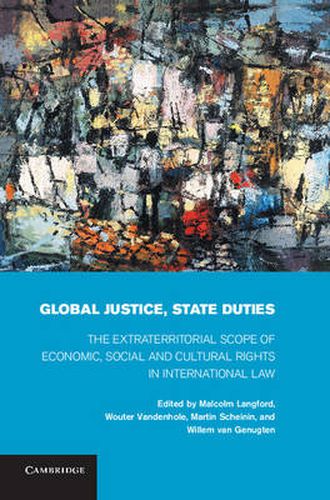Readings Newsletter
Become a Readings Member to make your shopping experience even easier.
Sign in or sign up for free!
You’re not far away from qualifying for FREE standard shipping within Australia
You’ve qualified for FREE standard shipping within Australia
The cart is loading…






The rise of globalization and the persistence of global poverty are straining the territorial paradigm of human rights. This book asks if states possess extraterritorial obligations under existing international human rights law to respect and ensure economic, social and cultural rights and how far those duties extend. Taking a departure point in theory and practice, the book is the first of its kind to analyze the principal cross-cutting legal issues at stake: the legal status of obligations, jurisdiction, causation, division of responsibility, and remedies and accountability. The book focuses specifically on the role of states but also addresses their duties to regulate powerful nonstate actors. The authors demonstrate that many key issues have been resolved or clarified in international law while others remain controversial or await the development of further practice, particularly the scope of jurisdiction and the quantitative dimension of extraterritorial obligations to fulfil.
$9.00 standard shipping within Australia
FREE standard shipping within Australia for orders over $100.00
Express & International shipping calculated at checkout
The rise of globalization and the persistence of global poverty are straining the territorial paradigm of human rights. This book asks if states possess extraterritorial obligations under existing international human rights law to respect and ensure economic, social and cultural rights and how far those duties extend. Taking a departure point in theory and practice, the book is the first of its kind to analyze the principal cross-cutting legal issues at stake: the legal status of obligations, jurisdiction, causation, division of responsibility, and remedies and accountability. The book focuses specifically on the role of states but also addresses their duties to regulate powerful nonstate actors. The authors demonstrate that many key issues have been resolved or clarified in international law while others remain controversial or await the development of further practice, particularly the scope of jurisdiction and the quantitative dimension of extraterritorial obligations to fulfil.